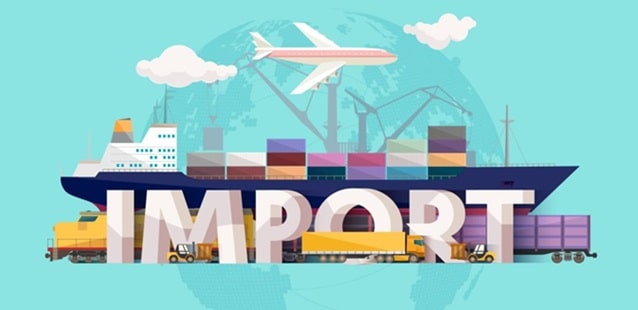Importing business is something where you actually import stuff from another nation (probably from a nation where that product is cheaper) and then sell it in your country or local market. Well, it is not a new thing, people literally have been doing this for ages. And yeah, it has got that potential that you might be looking for. But before you get too excited about it and get yourself into this kind of of business, you must know what is it like doing an actual importing business, you know? Well, for that, you must perform or conduct research of your own, we are here just to let you know about the possible advantages and disadvantages of importing business. You know, just to make things super easy for you, so yeah, let’s get to it then, shall we?

Advantages of Importing Business
1. A Whole New World of Products
Jumping into imports? It’s like swinging open the doors to a world brimming with new stuff. Imagine, in parts of the world where some items are as rare as a winning lottery ticket, importing is the golden key. It’s not just about flooding the market with new things. Nah! It’s about getting your hands on items that scream uniqueness or have that authentic vibe straight from their roots. This mix spices up the market and keeps businesses on their toes, trying to outshine each other in this global marketplace.
2. Saving Pennies Makes Dollars
Let’s talk about serious savings. Importing can be like finding a shortcut to budget bliss. You see, some places crank out products cheaper because of things like lower labor costs, bargain materials, you get the drift. This is like finding a hidden treasure for businesses. Cheaper costs for them, sweeter prices for us. Everyone’s wallet wins.
3. Quality Level
But yeah, importing isn’t just about counting coins. It’s about nabbing the best of the best. Some stuff? It’s just meant to be made in its home country. Fancy a glass of genuine French wine? Or maybe some top-tier Italian leather? This is where importing shines, delivering authenticity and top-drawer quality right to your doorstep. That’s what people are after, and importing puts it right in their hands.
4. Cashing In, Economy-Wise
On the bigger picture, importing is like the secret sauce for pumping up profits. By playing it smart and sourcing goods that are easier on the wallet but big on quality, businesses aren’t just upping their game, they’re feeding the whole economy. This is where the magic happens, creating jobs, getting people to open up their wallets, and keeping the market buzzing and thriving.
5. The Strategic Chess Move
Playing the Strategic Card: But hey, importing isn’t just about the immediate gains. It’s a chess move, you know? For countries still finding their feet, bringing in crucial goods and cutting-edge tech can be a game-changer. It’s about laying down the building blocks, sparking growth, and knitting those all-important international ties. And for businesses, it’s a power play, marking their territory in the market and setting the stage for bigger things down the line. All in all, you see, importing isn’t just trade, it’s a key player in the grander strategy game.
Disadvantages of Importing Business
1. Trade Deficits
Alright, let’s talk about something serious here, and that’s the risk of trade deficits in the importing game. When a country gets all excited importing more than it exports, bam! You’ve got yourself a negative balance of trade. This isn’t just about numbers; it’s a real drama for the economy. Imagine your country’s currency getting weaker, having to borrow loads from abroad, and basically hanging on the economic mood swings of other countries. If this keeps up, say hello to losing economic independence and getting tossed around by global economic tides.
2. Hooked on Foreign Goods
When you’re knee-deep in importing, you might just find yourself at the mercy of foreign suppliers. Think about it, political messes, economic slumps, or even Mother Nature throwing a fit in these supplier countries can mean major headaches for your supply chains. What if the stuff you import is like the backbone of your economy, or you’ve got no Plan B for sourcing? That’s the question you should always ask yourself when you are into all this importing stuff.
3. Local Industries Taking a Hit
See, if imports flood the market, local goodies might just get sidelined, leading to job losses and local businesses struggling, especially in areas where we’re not exactly world-beaters. And if we’re always looking overseas for products, our own entrepreneurial spirit and innovation might just take a backseat. In the long run, this could mean our home economy becomes less diverse and, let’s face it, kinda fragile.
4. The Quality Control Thing
Bringing in products from overseas is like a box of chocolates, you never know what you’re gonna get in terms of quality. Different places mean different production standards and rules, so consistency? Yeah, not always a thing. Businesses end up spending more time and money on quality checks to make sure everything’s up to the mark for their customers.
5. Political and Economic Risks
Lastly, let’s not forget the wild world of politics and economics in supplier countries. One day everything’s cool, the next, you’ve got new export rules, tariff hikes, or currency devaluation turning your importing plans upside down. Economic rollercoasters like inflation or recessions over there can also throw a wrench in your trade deals, making prices jump around like crazy. For anyone in the importing business, staying on your toes and really getting the global market scene is not just smart, it’s actually essential for keeping your business afloat.
Conclusion
That’ll do it for now. So yeah, by considering these advantages and disadvantages of importing business, you must be feeling a lot clearer in your head, right? We hope that this post has helped you form a well-informed conclusion about whether or not to give this importing business a shot. And if you are going down that path, then it is better to prepare as much as you can, like researching the market trends, estimating the demand, of course, laying down the actual business strategy, you know?

Meet Suhas Harshe, a financial advisor committed to assisting people and businesses in confidently understanding and managing the complexities of the financial world. Suhas has shared his knowledge on various topics like business, investment strategies, optimizing taxes, and promoting financial well-being through articles in InvestmentDose.com


